We’ve already talked about Hearthstone and Magic: The Gathering cards that are very similar, so now it’s time to put the game pieces aside and focus on the big picture: the sets that are similar or even identical in essence!
What We Consider “Similar Expansions”
To fall into this category and be featured in the article, the two expansions must have at least similar story themes, worlds, or mechanics. However, we admit that in this piece we focused on the “feel” of each set - that is, themes, story, or world.
Maybe next time we can choose to focus more on mechanics.
The Most Similar Sets Between MTG and Hearthstone
In addition to explaining why we made each choice, we’ll include two cards at the end of each section to make it easier to visualize the identity of each game.
Outlaws of Thunder Junction and Showdown in the Badlands
Outlaws of Thunder Junction is set in a plane that is in perpetual Old West, while Showdown in the Badlands features HS cards facing off in duels and fighting for dominance in a small, Old West-themed area.
To further enhance the fantasy of being in a duel from that era, the HS expansion uses a mechanic called Quick Draw, which gives you a bonus if you use the card the turn it was drawn, emulating the quick draw effect depicted in many films with this theme.
Outlaws of Thunder Junction, on the other hand, focuses more on the aspect of crime and the feeling of being an “outlaw.” One of the features in the set that best represents this aspect is "committing a crime," which in the game means targeting something from the opponent.
Although the two games approach the same theme in different ways, they are still similar enough to earn a place on this list.
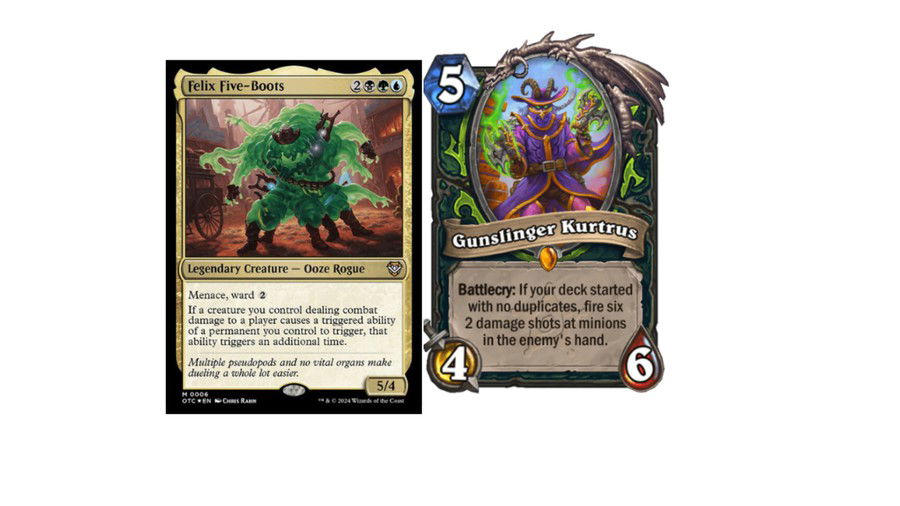
Rise of the Eldrazi and Whispers of the Old Gods
Giant, incomprehensible creatures full of tentacles re-emerge in our plane, causing destruction, corrupting reality around them, driving innocent people insane and generating cults full of people who do not understand their own new (or old) gods? Yes, these two sets approach the same theme in a very similar way, the main difference being that Hearthstone usually takes everything in a more humorous direction, while MTG is more serious.
In Rise of the Eldrazi, the set introduced colorless instants and sorceries, demonstrating how the Titans can modify reality around them despite not being associated with any color. Meanwhile, in Whispers of the Old Gods, the mechanic of increasing the power of C’Thun represents the cults that give it strength.
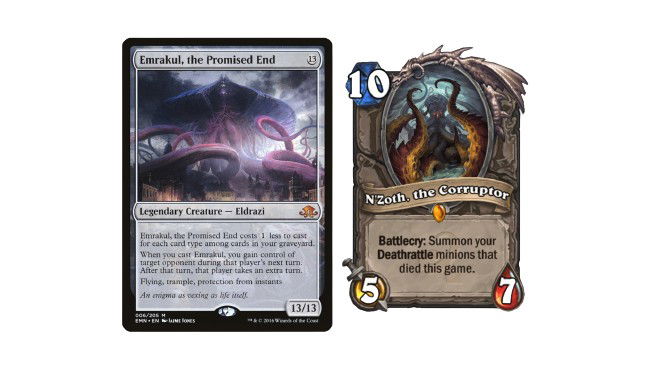
Innistrad and Witchwood
Innistrad is a dark plane, home to vampires and werewolves, among other supernatural creatures like zombies and “Frankensteins”. Here, humanity lives in constant fear and danger of extinction, seeking defense in the divine, strengthening the church of Avacyn.
Witchwood, on the other hand, is also home to vampires, werewolves, and zombies, but the dynamics are different. In Witchwood, humans are not defenseless; the set focuses more on the strength of unity and how we can prevail and even thrive in the face of these adversities. Werewolves, known as Worgens, protect humans from supernatural dangers.
To make the player feel immersed in the expansion, Blizzard created the mechanics Echo and Rush, as well as cards that transform like Gilnean Royal Guard. Innistrad used transforming cards to represent werewolves and zombies with Decay, as well as blood tokens for vampires.
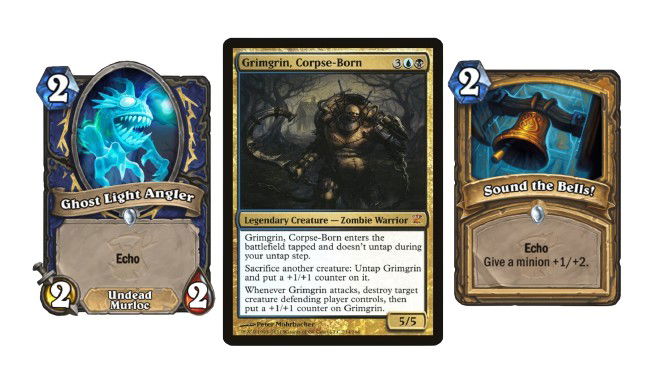
Murders at Karlov Manor and Murder at Castle Nathria
A prominent figure in high society is murdered within their mansion (or castle), and now the characters must discover who the culprit is. Both Murders at Karlov Manor and Murder at Castle Nathria follow this formula. Also, both have their own detectives: Alquist Proft in MTG and Murloc Holmes in HS.
Castle Nathria introduced “Locations,” cards that occupy a space on the field and can be used up to three times, representing the rooms of the castle being investigated. In Karlov Manor, the Investigate mechanic creates clue tokens, which, when sacrificed, draw an extra card, representing the gathering of information throughout the case.
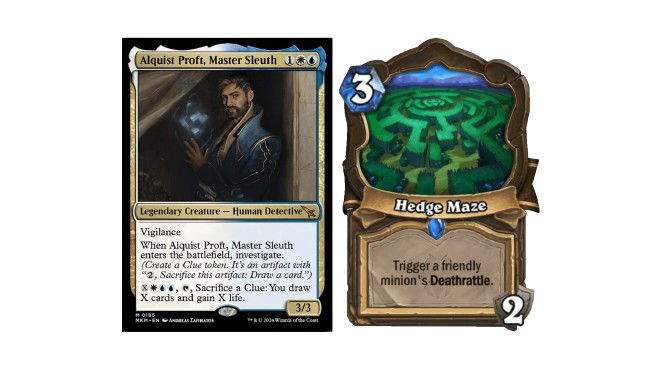
Streets of New Capenna and Mean Streets of Gadgetzan
Streets of New Capenna and lMean Streets of Gadgetzan are expansions set in corrupt urban environments dominated by gangs. Both sets focus on organized crime and power struggles.
Streets of New Capenna presents a city full of glamour and decadence, where five criminal families fight for control. Mean Streets of Gadgetzan, in turn, features three main gangs, each with their own style and mechanics.
To sell the fantasy of organized crime, Streets of New Capenna uses the Alliance mechanic, which gives rewards whenever another creature enters the battlefield under your control, representing the cooperation and network of contacts of the criminal families. Additionally, the set has a strong presence of "Family" cards, representing the different gangs.
Mean Streets of Gadgetzan introduced the Tri-Class Cards mechanic (just as the families in Capenna have three colors), cards that can be used by three different classes, representing the alliance between the gangs. Each gang has its own characteristics and styles, which is reflected in the cards and their abilities.
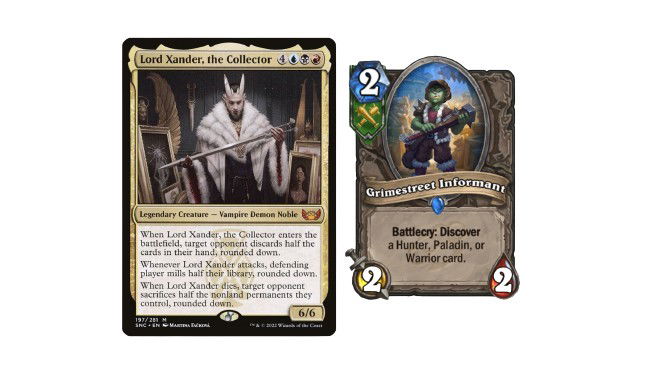
Conclusion
These expansions show how themes and settings can be uniquely adapted by different games while maintaining a similar essence. We also have this article on similar cards between these two games, check it out!
And you, do you have any sets that you think are similar between the two games? Leave a comment!








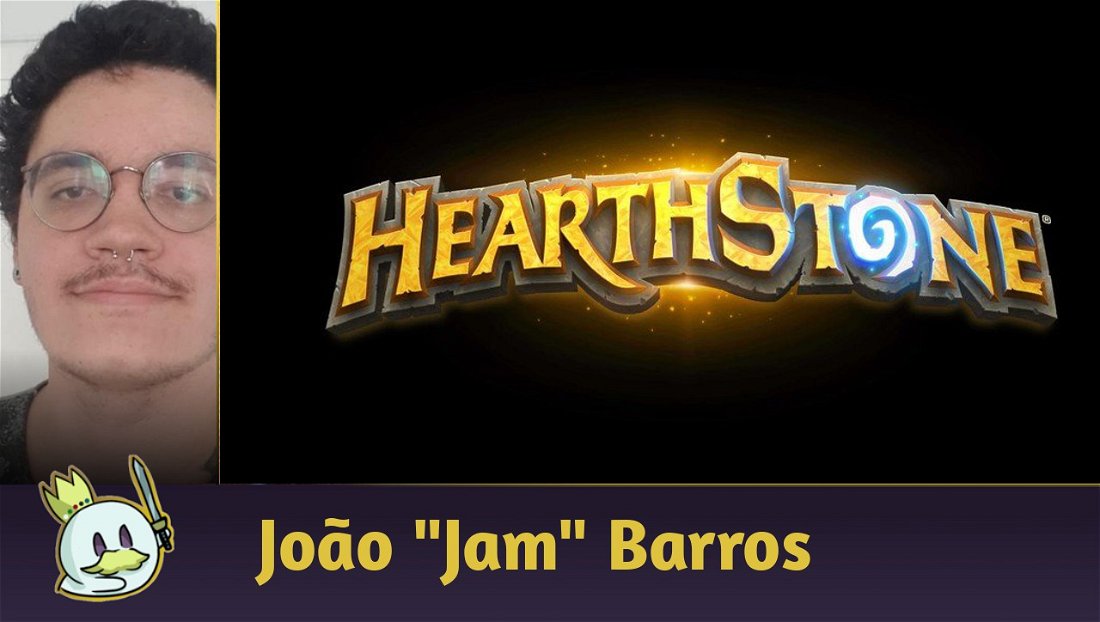
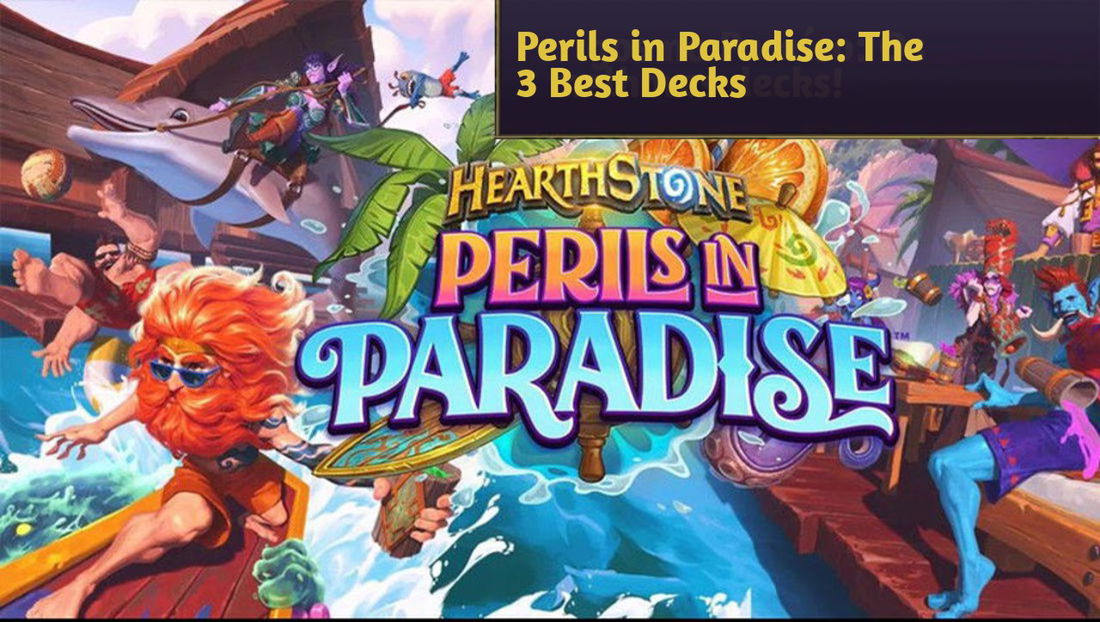



— commentaires 0
, Réactions 1
Soyez le premier à commenter